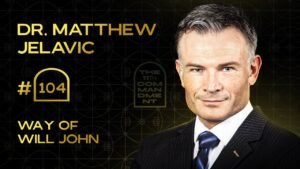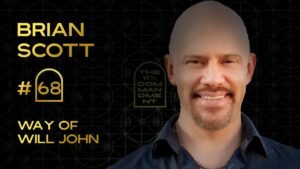
Unraveling Nutrition Myths: A Conversation with Dr. Giles Yeo
In the bustling world of nutrition and wellness, distinguishing between fact and fiction can feel like an insurmountable task. Enter Dr. Giles Yeo, a voice of reason amidst the cacophony of nutritional advice. A professor at the University of Cambridge, Yeo specializes in the study of the brain’s control over food intake and the genetics of body weight. His insights shed light on common misconceptions surrounding diets, processed foods, and the elusive quest for a universal diet.
The Myth of the Universal Diet
Dr. Yeo emphasizes that the search for a one-size-fits-all diet is futile. Humans, much like cockroaches, are ultimate adapters. Our diets have historically been shaped by availability and necessity rather than strict adherence to a single food group. This adaptability means there is no single “universal diet” suitable for everyone. Instead, our focus should be on balance and moderation, tailored to individual needs and circumstances.
Processed vs. Ultra-Processed Foods
A significant part of our discussion revolved around the distinction between processed and ultra-processed foods. While the term “processed” encompasses a broad range of food preparation techniques, from cooking to fermenting, “ultra-processed” refers to foods that have been significantly altered from their original state, often with the addition of artificial ingredients. These are the foods, Yeo suggests, we should consume sparingly. However, he warns against overly broad categorizations, advocating for a more nuanced understanding of what makes certain processed foods detrimental to our health.
Supplements: Necessity or Excess?
The supplement industry thrives on the premise that our diets are inherently lacking. Yeo challenges this notion, arguing that most people, barring specific dietary restrictions or health conditions, get sufficient nutrients from their food. He contends that supplements are largely unnecessary for the general population and may even be indicative of a privileged mindset that overlooks the nutritional adequacy of a varied diet.
Veganism: A Privileged Choice?
The conversation also touched upon veganism and vegetarianism. While Yeo acknowledges the nutritional completeness of a vegetarian diet enriched with eggs and dairy, he views veganism through a critical lens. He describes it as a “privileged choice” that requires a deep understanding of nutrition to avoid deficiencies. Veganism, according to Yeo, is feasible and healthy if approached knowledgeably, but it may not be a practical option for everyone, particularly those in lower socioeconomic brackets.
Dr. Giles Yeo’s insights remind us of the importance of critical thinking and personalization in our approach to nutrition. In a world eager for simple answers, he encourages a more thoughtful, informed, and adaptable stance toward what we eat.
For those intrigued by the complexities of nutrition and eager to navigate its myths and truths, delving into the full discussion with Dr. Giles Yeo offers a wealth of knowledge and perspective. Listen to the Podcast to explore the intricate relationship between diet, health, and lifestyle from a scientific viewpoint
Related Posts


Engineering Financial Success: Dr. Matthew Jelavic’s Multidisciplinary Approach





